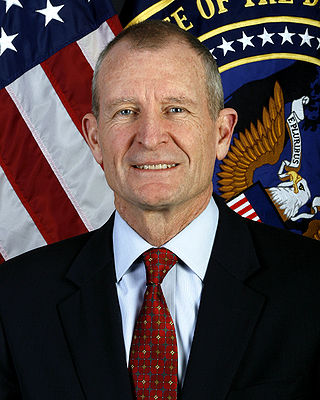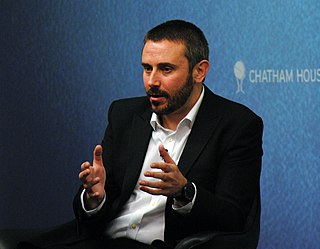
A death squad is an armed group whose primary activity is carrying out extrajudicial killings or forced disappearances as part of political repression, genocide, ethnic cleansing, or revolutionary terror. Except in rare cases in which they are formed by an insurgency, domestic or foreign governments actively participate in, support, or ignore the death squad's activities. Death squads are distinct from assassination from their permanent organization and the larger number of victims who may not be prominent individuals. Other violence, such as rape, torture, arson, or bombings may be carried out alongside murders. They may comprise a secret police force, paramilitary militia groups, government soldiers, policemen, or combinations thereof. They may also be organized as vigilantes, bounty hunters, mercenaries, or contract killers. When death squads are not controlled by the state, they may consist of insurgent forces or organized crime, such as the ones used by cartels.

East Timor, officially the Democratic Republic of Timor-Leste, is a country in Southeast Asia and Oceania. The country comprises the eastern half of the island of Timor and the nearby islands of Atauro and Jaco. The first inhabitants are thought to be descendant of Australoid and Melanesian peoples. The Portuguese began to trade with Timor by the early 16th century and colonised it throughout the mid-century. Skirmishing with the Dutch in the region eventually resulted in an 1859 treaty for which Portugal ceded the western half of the island. Imperial Japan occupied East Timor during World War II, but Portugal resumed colonial authority after the Japanese surrender.

Amy Goodman is an American broadcast journalist, syndicated columnist, investigative reporter, and author. Her investigative journalism career includes coverage of the East Timor independence movement, Morocco's occupation of Western Sahara, and Chevron Corporation's role in Nigeria.
Brigadier General Óscar Humberto Mejía Víctores was a Guatemalan military officer and politician who served as the Head of Government from August 1983 to January 1986. A member of the military, he was head of state during the apex of repression and death squad activity in the Central American nation. When he was minister of defense, he rallied a coup against President Ríos Montt, which he justified by declaring that religious fanatics were abusing the government. He allowed for a return to democracy, with elections for a constituent assembly being held in 1984, followed by general elections in 1985.

The Balibo Five was a group of journalists for Australian commercial television networks who were murdered in the period leading up to the Indonesian invasion of East Timor. The Balibo Five were based in the town of Balibo in East Timor, where they were killed on 16 October 1975 during Indonesian incursions before the invasion. Roger East travelled to Balibo soon after to investigate the likely deaths of the Five and was later executed by members of the Indonesian military on the docks of Dili.
The Front for the Advancement and Progress of Haiti (FRAPH) (French: Front pour l'Avancement et le Progrès Haitien) was a far-right paramilitary group organized in mid-1993. Its goal was to undermine support for the popular Catholic priest Jean-Bertrand Aristide, who served less than eight months as Haïti's president before being deposed, on 29 September 1991, by a coup. The group received covert support and funding from the United States government.

Max Christopher Wenner, known as Christopher Wenner and later as Max Stahl, was a British journalist and television presenter. He was best known for filming an East Timorese demonstration and its aftermath that became known as the Santa Cruz massacre. His coverage of East Timor's struggle for independence is listed in Unesco's Memory of the World register as a "turning point" in the birth of a new nation.

Dennis Cutler Blair is the former United States Director of National Intelligence and a retired United States Navy admiral who was the commander of U.S. forces in the Pacific region. Blair was a career officer in the U.S. Navy and served in the White House during the presidencies of both Jimmy Carter and Ronald Reagan. Blair retired from the Navy in 2002 as an Admiral. In 2009, Blair was selected as President Barack Obama’s first Director of National Intelligence, but after a series of bureaucratic battles, he resigned on May 20, 2010.

The Guatemalan Civil War was a civil war in Guatemala fought from 1960 to 1996 between the government of Guatemala and various leftist rebel groups. The government forces have been condemned for committing genocide against the Maya population of Guatemala during the civil war and for widespread human rights violations against civilians. The context of the struggle was based on longstanding issues of unfair land distribution. Wealthy Guatemalans, mainly European-descended, and foreign companies such as the American United Fruit Company had dominated control over much of the land, and paid almost zero taxes in return – leading to conflicts with the rural indigenous poor who worked the land under miserable terms.

The Indonesian invasion of East Timor, known in Indonesia as Operation Lotus, began on 7 December 1975 when the Indonesian military (ABRI/TNI) invaded East Timor under the pretext of anti-colonialism and anti-communism to overthrow the Fretilin regime that had emerged in 1974. The overthrow of the popular and short-lived Fretilin-led government sparked a violent quarter-century occupation in which approximately 100,000–180,000 soldiers and civilians are estimated to have been killed or starved to death. The Commission for Reception, Truth and Reconciliation in East Timor documented a minimum estimate of 102,000 conflict-related deaths in East Timor throughout the entire period from 1974 to 1999, including 18,600 violent killings and 84,200 deaths from disease and starvation; Indonesian forces and their auxiliaries combined were responsible for 70% of the killings.

Jeremy Scahill is an American investigative journalist, writer, a founding editor of the online news publication The Intercept, and author of Blackwater: The Rise of the World's Most Powerful Mercenary Army, which won the George Polk Book Award. His book Dirty Wars: The World Is a Battlefield was published by Nation Books on April 23, 2013. On June 8, 2013, the documentary film of the same name, produced, narrated and co-written by Scahill, was released. It premiered at the 2013 Sundance Film Festival.

Otto Fernando Pérez Molina is a Guatemalan politician and retired general who served as the President of Guatemala from 2012 to 2015. Standing as the Patriotic Party candidate, he lost the 2007 presidential election but prevailed in the 2011 presidential election. During the 1990s, before entering politics, he served as Director of Military Intelligence, Presidential Chief of Staff under President Ramiro de León Carpio, and as the chief representative of the military for the Guatemalan Peace Accords. On being elected President, he called for the legalization of drugs.

The Indonesian occupation of East Timor began in December 1975 and lasted until October 1999. After centuries of Portuguese colonial rule in East Timor, the 1974 Carnation Revolution in Portugal led to the decolonisation of its former colonies, creating instability in East Timor and leaving its future uncertain. After a small-scale civil war, the pro-independence Fretilin declared victory in the capital city of Dili and declared an independent East Timor on 28 November 1975.

Large-scale killings and civil unrest primarily targeting members of the Communist Party (PKI) were carried out in Indonesia from 1965 to 1966. Other affected groups included alleged communist sympathisers, Gerwani women, trade unionists, ethnic Javanese Abangan, ethnic Chinese, atheists, so-called "unbelievers", and alleged leftists in general. According to the most widely published estimates at least 500,000 to 1.2 million people were killed, with some estimates going as high as two to three million. The atrocities, sometimes described as a genocide or politicide, were instigated by the Indonesian Army under Suharto. Research and declassified documents demonstrate the Indonesian authorities received support from foreign countries such as the United States and the United Kingdom.
The East Timor and Indonesia Action Network (ETAN) is a nonprofit US organization supporting human rights throughout Southeast Asia and Oceania. ETAN was founded in 1991 to support the right to self-determination of Timor-Leste. In 1999, that goal was significantly realized when the people of East Timor voted for independence. Since then ETAN has focused on building on its success in support of justice and self-determination in Timor-Leste and the surrounding region.

East Timor and Indonesia established diplomatic relations in 2002. Both share the island of Timor. Indonesia invaded the former Portuguese colony in 1975 and annexed East Timor in 1976, maintaining East Timor as its 27th province until a United Nations-sponsored referendum in 1999, in which the people of East Timor chose independence. Following a United Nations interim administration, East Timor gained independence in 2002. Indonesia already had a consulate in Dili during the Portuguese colonial period, though Indonesia formalized their relations by establishing an embassy in Dili. Since October 2002, East Timor has an embassy in Jakarta and consulates in Denpasar and Kupang. Relations between the two countries are generally considered highly positive, despite various problems. Numerous agreements regulate cooperation in different areas. East Timorese are visa-free in Indonesia.

Anti-communist mass killings are the politically motivated mass killings of communists, alleged communists, or their alleged supporters which were committed by anti-communists and political organizations or governments which opposed communism. The communist movement has faced opposition since it was founded and the opposition to it has often been organized and violent. Many anti-communist mass killing campaigns waged during the Cold War were supported and backed by the United States and its Western Bloc allies. Some U.S.-supported mass killings, including the Indonesian mass killings of 1965–66 and the killings by the Guatemalan military during the Guatemalan Civil War, are considered acts of genocide by some scholars.

The Guatemalan genocide, also referred to as the Maya genocide, or the Silent Holocaust, was the massacre of Maya civilians during the Guatemalan Civil War (1960–1996) by successive US-backed Guatemalan military governments. Massacres, forced disappearances, torture and summary executions of guerrillas and especially civilian collaborators at the hands of security forces had been widespread since 1965, and was a longstanding policy of the military regime, which US officials were aware of. A report from 1984 discussed "the murder of thousands by a military government that maintains its authority by terror". Human Rights Watch has described "extraordinarily cruel" actions by the armed forces, mostly against unarmed civilians.

The Santa Cruz massacre was the murder of at least 250 East Timorese pro-independence demonstrators in the Santa Cruz cemetery in the capital, Dili, on 12 November 1991, during the Indonesian occupation of East Timor and is part of the East Timor genocide.

The East Timor genocide refers to the "pacification campaigns" of state terrorism which were waged by the Indonesian New Order government during the Indonesian invasion and occupation of East Timor. The majority of sources consider the Indonesian killings in East Timor to constitute genocide, while other scholars disagree on certain aspects of the definition.
















